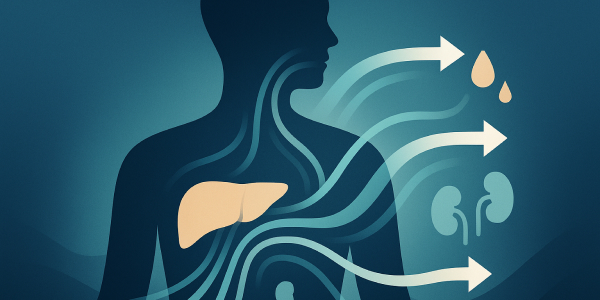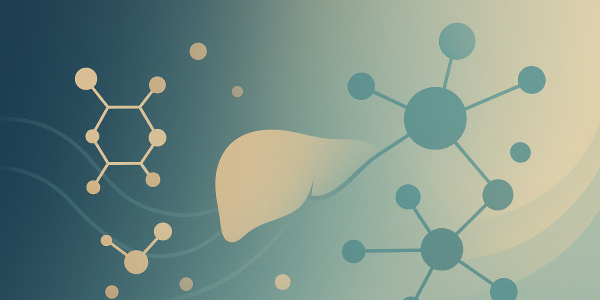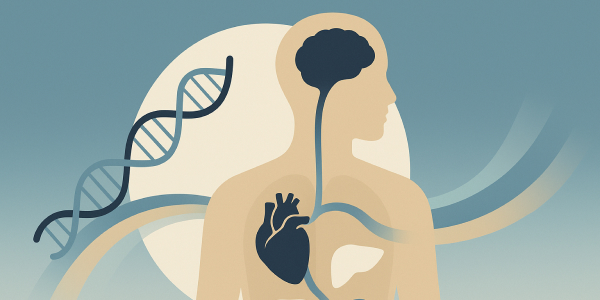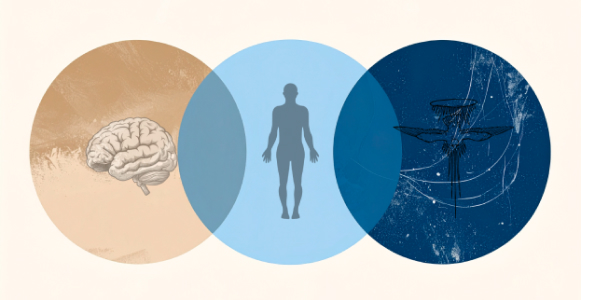Taking Action: Your Complete Methylation Support Strategy


Over the past four weeks, we've built a comprehensive understanding of methylation: what it is, how the gene network functions, and why it matters for both mental and physical health. Now comes the most important part: what do you actually DO about it. The beauty of methylation is that while the science is complex, the interventions are often surprisingly straightforward. Whether you're dealing with known genetic variants, unexplained symptoms, or simply want to optimize your health, supporting methylation through targeted nutrition, lifestyle, and strategic supplementation can be genuinely transformative.
But here's the thing: before we talk about what to add, we need to talk about what to remove. Because you can take all the supplements in the world, but if you're actively sabotaging your methylation pathways with poor lifestyle choices, you're fighting an uphill battle.
Stop Sabotaging Your Methylation
The fastest way to improve methylation isn't always about adding more, it's about removing what's actively working against you.
Alcohol: The Methylation Destroyer
If there's one thing that devastates methylation capacity, it's alcohol. Alcohol directly depletes your folate reserves, interferes with B12 absorption, damages the liver (where much of methylation happens), and increases the demand for methylation to process and clear it from your system.
Here's the reality, if you're already struggling with methylation due to genetic variants or deficiencies, regular alcohol consumption is working directly against you. Even moderate drinking (a few drinks per week) can significantly impair an already compromised system. For people with MTHFR variants or elevated homocysteine, alcohol isn't just "not great," it's actively harmful.
This doesn't mean you can never have a drink, but it does mean you need to be honest about the trade off. If you're dealing with anxiety, depression, fatigue, brain fog, or any of the symptoms we've discussed in this series, cutting out alcohol for 60 to 90 days while you implement other methylation support strategies can make a dramatic difference.
Processed (and Highly Processed) Foods: The Silent Underminer
Processed foods don't just lack nutrients, they actively deplete them. They're loaded with synthetic folic acid (which people with MTHFR variants can't process well and which may block folate receptors), they contain additives and preservatives that increase your toxic load (requiring more methylation to clear), they spike blood sugar and create inflammation (taxing all body systems including methylation), and they displace whole foods that would actually provide the B vitamins and cofactors you need.
The Standard American Diet (the SAD diet, because it makes me SAD) is essentially designed to create methylation problems. It's high in synthetic folic acid from fortified grains, low in natural folate from vegetables, devoid of bioavailable B12, packed with inflammatory seed oils and sugar, and loaded with chemicals that your liver has to methylate to eliminate.
The single most impactful dietary change you can make? EAT ... WHOLE ... FOODS. Eat whole foods. Real vegetables, quality proteins, healthy fats, and minimal processing. This isn't sexy or complicated, but it's foundational.
Environmental Toxins: Increasing the Load
Every toxin you're exposed to requires methylation for clearance. When you reduce toxic exposure, you free up methylation capacity for everything else your body needs to do (neurotransmitter balance, hormone regulation, DNA repair, energy production).
Simple swaps that matter: filter your drinking water (reverse osmosis or high quality carbon filter removes chlorine, fluoride, heavy metals), choose organic produce when possible (especially for the "Dirty Dozen" with highest pesticide loads), switch to natural cleaning products (most conventional cleaners are loaded with VOCs and endocrine disruptors), use clean personal care products (check the EWG Skin Deep database), avoid plastic food containers and especially never microwave food in plastic, ensure good indoor air quality (HEPA filters, open windows, houseplants), and don't smoke or expose yourself to secondhand smoke.
You don't have to be perfect, but every toxin you avoid is one less thing your methylation pathways have to deal with.
Lifestyle: The Foundation That Makes Everything Else Work
You cannot supplement your way out of a terrible lifestyle. Sleep, stress management, and movement are non negotiable if you want healthy methylation.
Sleep: The Master Reset
Poor sleep is one of the fastest ways to destroy methylation function. When you don't sleep well, cortisol stays elevated (downregulating methylation pathways), inflammation increases (taxing detox and methylation), nutrient depletion accelerates (B vitamins, magnesium, and other cofactors get burned through faster), detoxification is impaired (the liver does most of its detox work at night), and neurotransmitter balance suffers (making anxiety and mood issues worse).
Most people with methylation issues have sleep problems. It's a vicious cycle. Poor methylation disrupts sleep, and poor sleep worsens methylation. Breaking this cycle requires prioritizing sleep as aggressively as you'd prioritize any other intervention.
What actually works, aim for seven to nine hours consistently, not just on weekends. Maintain a regular sleep wake schedule, even on weekends, because your circadian rhythm affects methylation. Create a dark, cool sleeping environment (blackout curtains, temperature around 65 to 68°F). Limit blue light exposure two hours before bed (use blue light blocking glasses or apps like f.lux). Avoid alcohol close to bedtime because it ruins sleep architecture even if it helps you fall asleep. Manage stress and racing thoughts through meditation, journaling, or therapy. If anxiety is keeping you awake, that's a likely a methylation issue that needs to be addressed with the strategies in this article.
Stress Management: Breaking the Cortisol Methylation Cycle
As we covered in Methylation, Stress & Mental Health: The Anxiety Connection, chronic stress and methylation have a bidirectional relationship. Stress depletes methyl donors, downregulates the BHMT backup pathway, increases nutritional demands, and triggers inflammation. Meanwhile, poor methylation impairs your stress resilience through neurotransmitter imbalances, poor cortisol regulation, reduced detoxification capacity, and mitochondrial dysfunction.
You cannot fix methylation without addressing stress, and you cannot fully manage stress without fixing methylation. This is why a comprehensive approach matters.
Evidence based stress reduction that actually works: daily meditation or breathwork, even just 10 minutes makes a measurable difference in cortisol levels. Regular exercise, but not excessive (more on this below). Time in nature, which has been shown to lower cortisol and improve autonomic nervous system balance. Strong social connections, because isolation is a profound stressor. Therapy or counseling when needed, especially for trauma or chronic anxiety. Boundaries around work and technology, because constant connectivity keeps your nervous system activated. Hobbies and activities that bring genuine joy, not just "productivity" or self optimization.
If you're chronically stressed and don't address it, methylation support will only get you so far.
Exercise: Find Your Rhythm
Moderate exercise supports methylation by reducing inflammation, improving detoxification through lymphatic movement and sweating, enhancing mitochondrial function, and regulating stress hormones. The good news? You don't need to punish yourself in the gym to get these benefits.
The sweet spot for most people is 150 plus minutes of moderate activity per week. This is where Zone 2 training shines. Zone 2 is that conversational pace where you're working but could still hold a conversation, think brisk walking, easy cycling, light jogging, or swimming at a comfortable pace. This is the intensity where your body builds mitochondrial capacity, improves fat metabolism, and supports cellular health without creating excessive stress.
That said, your body also benefits from occasional higher intensity work. Short bursts of Zone 4 or 5 training (where you're breathing hard and can't talk easily) a couple times per week help with cardiovascular conditioning and metabolic flexibility. Think sprint intervals, hill repeats, or circuit training. But the foundation should be consistent, moderate movement.
A good weekly mix might look like four to five days of Zone 2 work (30 to 45 minutes each), one to two days of higher intensity intervals (20 to 30 minutes), one to two days of strength training, and at least one full rest day.
The key is consistency over intensity. Regular moderate exercise beats sporadic intense exercise for methylation support. Listen to your body, and if you're feeling good, recovering well, and seeing improvements in energy and mood, you're likely in the right zone.
Strategic Supplementation: Targeted Support When You Need It
Now that we've covered what to avoid and how to optimize lifestyle, let's talk about supplementation. Supplements should complement, not replace, the foundation we just built.
Starting Point: The Essentials
If you're new to methylation support, start here. However, your specific MTHFR variant profile (if known) can help guide dosing and priorities.
Methylated B Vitamins
Standard B vitamins often contain folic acid (synthetic) and cyanocobalamin (inactive B12). People with MTHFR and other variants need the pre-methylated forms.
For C677T variants, especially if you have two copies, you'll likely need higher doses of methylfolate, eventually working up to 2 to 5 mg per day, and higher B12 at 1,000 to 5,000 mcg daily. Riboflavin (B2) is critical at 25 to 50 mg per day because it directly supports the C677T enzyme. B6 is also important at 25 to 50 mg daily to support homocysteine clearance. Start low and go slow, beginning with 400 to 800 mcg methylfolate to assess tolerance.
For A1298C variants, you'll typically need moderate methylfolate at 1 to 2 mg per day, moderate B12 at 500 to 1,000 mcg daily, and B6 is particularly important for neurotransmitter balance. Be aware that you may be more sensitive to overmethylation, so watch for anxiety or agitation.
For compound heterozygous (one copy of C677T plus one copy of A1298C), you need comprehensive support for both pathways. Start conservatively with 400 to 800 mcg methylfolate and 1,000 mcg B12, then gradually increase based on response. Monitor both homocysteine levels (via your bloodword) and mood or anxiety symptoms.
Some people feel overstimulated or anxious with methyl donors. This often indicates downstream bottlenecks, which we'll cover in the troubleshooting section.
Magnesium
Nearly everyone is deficient in magnesium. Magnesium glycinate is well absorbed and calming. Start with 200 to 400 mg daily, taken in the evening. Magnesium is a cofactor for dozens of methylation related enzymes, so this isn't optional.
Omega 3 Fatty Acids
High quality fish oil or algae oil reduces inflammation, supports brain health, and helps regulate methylation related pathways. Aim for 1 to 2 grams combined EPA and DHA daily. This is particularly important if you're dealing with mood issues or cardiovascular concerns.
Intermediate: Targeted Support Based on Your Profile
Once you've established the foundation, consider these based on your specific needs.
For BHMT Support (Backup Pathway)
Betaine or TMG (trimethylglycine) at 500 to 2,000 mg daily provides methyl groups via the BHMT pathway, bypassing MTHFR entirely. Choline as phosphatidylcholine or CDP choline at 300 to 600 mg daily converts to betaine in the body. These are best for people with both MTHFR and BHMT variants, or those who don't tolerate methylfolate well.
For Homocysteine Management
If your homocysteine is elevated (above 10 μmol/L), ensure adequate methylfolate, B12, B6, and B2 as outlined above. Add TMG or betaine at 1,000 to 3,000 mg daily. Consider N acetylcysteine (NAC) at 600 to 1,200 mg daily, which supports the transsulfuration pathway. Retest homocysteine every two to three months to track progress.
For Detoxification Support
NAC at 600 to 1,200 mg daily is a precursor to glutathione, your master antioxidant. Glutathione in liposomal or S acetyl forms at 250 to 500 mg daily can be helpful, though NAC is often more cost effective. Vitamin C at 1,000 to 2,000 mg daily supports both glutathione recycling and general detox pathways. The NAC, glutathione, and vitamin C stack is particularly powerful for comprehensive detox support. Milk thistle (silymarin) supports liver Phase II detoxification. Alpha lipoic acid at 300 to 600 mg daily helps recycle glutathione and chelate metals.
Zinc and copper balance is also worth considering. A 10 to 1 ratio of zinc to copper (for example, 10 mg zinc with 1 mg copper) can support both detoxification and immune function. Most people are zinc deficient and relatively copper high, so targeted zinc supplementation can be beneficial. However, long term high dose zinc without copper can create imbalances, so the 10 to 1 ratio helps maintain equilibrium.
For Neurotransmitter and Mood Support (especially A1298C variants)
SAMe (S adenosylmethionine) at 400 to 800 mg daily is a direct methyl donor and can be profoundly helpful for depression, but it may overstimulate some people. Those with A1298C variants may be particularly sensitive, so start low. L tyrosine at 500 to 1,500 mg daily (morning, empty stomach) supports dopamine production and is helpful when the BH4 pathway is impaired by A1298C variants. Lithium orotate at 5 to 10 mg daily (very low dose) supports B12 transport into cells and mood regulation. L methylfolate at higher doses, up to 5 to 15 mg daily for treatment resistant depression, should be used under professional guidance and is more relevant for C677T variants with mood symptoms.
Advanced: When You Need Deeper Support
Some people require more comprehensive approaches, especially those with multiple gene variants or complex health issues.
COMT Considerations
If you have slow COMT variants or suspect slow COMT based on symptoms (anxiety, racing thoughts, overstimulation), be cautious with high dose methyl donors like methylfolate, methylcobalamin, or SAMe. Consider supporting COMT with magnesium and SAMe in moderate doses. Focus on lifestyle interventions like stress management, adequate sleep, and avoiding stimulants. Some people benefit from low dose lithium or hydroxocobalamin, a non methylated B12 form.
If you have fast COMT (less common), you may tolerate and benefit from higher dose methyl donors and may need more aggressive methylation support overall.
CBS Considerations
If you have CBS upregulation (often the CBS C699T variant), you may need to limit high sulfur foods if you're sensitive (cruciferous vegetables, garlic, onions, eggs). Be cautious with NAC and glutathione because they can worsen sulfur sensitivity in some people. Focus on supporting the methionine cycle to prevent depletion. Consider molybdenum at 150 to 500 mcg daily, which helps process sulfur metabolites.
When Methyl Donors Make You Feel Worse
Some people feel anxious, irritable, or overstimulated on methylfolate or methylcobalamin. This usually indicates one of three things.
First, you might have downstream bottlenecks, meaning MTR or MTRR aren't functioning well, so active folate piles up. The solution is to add methylcobalamin (B12), riboflavin, and possibly TMG to support downstream processing.
Second, you might have COMT overwhelm, where too much methyl activity means neurotransmitters aren't being cleared efficiently. The solution is to reduce methyl donor doses and support COMT with magnesium while managing stress.
Third, you might be experiencing detox reactions, where improved methylation is mobilizing stored toxins too quickly. The solution is to slow down, support detox pathways with hydration, fiber, and binders, and go low and slow with supplementation.
Nutrition: Food as Medicine
While supplements are powerful tools, food should always be the foundation. Your body is designed to obtain methylation cofactors from diet, and food based nutrients often work synergistically in ways isolated supplements can't replicate.
The most important dietary principle for methylation support is simple: eat whole foods and avoid processed foods. This single change addresses multiple issues at once. You get natural folate instead of synthetic folic acid, you reduce toxic load, you get bioavailable B vitamins and cofactors, and you reduce inflammation.
Key Nutrients and Their Food Sources
Folate, not folic acid, is critical. Your body needs natural folate from food. The best sources are dark leafy greens like spinach, kale, collards, arugula, and romaine, asparagus and broccoli, Brussels sprouts, legumes including lentils, chickpeas, and black beans, avocado, beets, and liver if you tolerate it (highest folate density of any food).
Vitamin B12 is essential for the MTR enzyme. B12 deficiency is epidemic, especially in vegetarians, vegans, people over 50, and those with gut issues. The best sources are grass fed beef and lamb, wild caught fish like salmon, sardines, mackerel, and trout, shellfish including clams, mussels, and oysters, pasture raised eggs, dairy like cheese and yogurt if you tolerate it, and liver and organ meats. Plant foods contain virtually no B12, so vegans and vegetarians must supplement.
Vitamin B6 is critical for CBS and transsulfuration. Good sources include poultry like chicken and turkey, wild caught fish such as salmon and tuna, potatoes with skin, chickpeas, bananas, and sunflower seeds.
Vitamin B2 (riboflavin) is required for MTRR to reactivate MTR. Find it in eggs, dairy products, almonds, mushrooms, spinach, and grass fed beef.
Choline and betaine support the BHMT backup pathway. Choline is found in egg yolks, liver, grass fed beef, salmon, chicken, and cruciferous vegetables. Betaine is abundant in beets and beet juice, spinach, quinoa, and sweet potato.
Magnesium is a cofactor for dozens of methylation enzymes. Get it from pumpkin seeds, dark chocolate (85% cacao or higher), spinach and Swiss chard, black beans, cashews and almonds, and avocado.
Zinc supports numerous methylation enzymes and SAMe production. The best sources are oysters (highest concentration), grass fed beef, pumpkin seeds, cashews, and chickpeas.
Dietary Patterns That Support Methylation
Emphasize whole foods over processed foods, organic produce when possible to reduce toxic load, grass fed and pasture raised animal products for higher nutrient density, wild caught fish for omega 3s that reduce inflammation, colorful vegetables for antioxidants that support detoxification, and adequate protein to provide amino acids for methylation.
Minimize processed foods (often contain synthetic folic acid), excess alcohol (severely impairs methylation), high sugar foods (promote inflammation and deplete nutrients), processed meats with nitrates and nitrites, and foods high in artificial additives and preservatives.
Testing: Know Your Starting Point and Track Progress
While you can support methylation based on symptoms alone, testing provides valuable data and allows you to track progress objectively.
Genetic Testing
Consider testing MTHFR (C677T and A1298C variants), MTR and MTRR, BHMT, CBS, and COMT for context on mental health and estrogen metabolism. Options include 23andMe or AncestryDNA with raw data uploaded to third party sites like Genetic Genie or StrateGene for interpretation, or specialty panels from functional medicine labs like Genomind or Nutrition Genome.
Remember that genes load the gun, but environment and lifestyle pull the trigger. Genetic variants don't determine your destiny, they inform your strategy.
Functional Lab Testing
Homocysteine blood test is an essential baseline marker. Ideal levels are below 8 μmol/L. Retest every two to three months when intervening.
Methylmalonic acid (MMA) in blood or urine is a more sensitive indicator of B12 deficiency than serum B12. Elevated MMA indicates functional B12 deficiency even if serum B12 looks normal.
Complete blood count (CBC) can show elevated MCV (mean corpuscular volume), which suggests B12 or folate deficiency and macrocytic anemia.
Comprehensive metabolic panel assesses liver function (AST, ALT) for detoxification capacity and kidney function (creatinine), which is affected by methylation.
Organic acids test provides a metabolic snapshot including methylation markers, nutrient deficiencies, neurotransmitter metabolites, and detox capacity.
Some functional labs offer methylation panels that measure SAMe, SAH, and SAMe/SAH ratio as indicators of methylation capacity and efficiency.
Monitoring Symptoms
Numbers matter, but so does how you feel. Track energy levels and fatigue patterns, mood and anxiety and stress resilience, sleep quality, cognitive function like focus, memory, and mental clarity, physical symptoms such as pain, inflammation, and digestive issues, and stress recovery.
Keep a journal for the first four to eight weeks of any new protocol. Changes can be subtle at first but become apparent when you look back.
Your Progressive Action Plan: Start Here, Advance When Ready
Not everyone needs the same level of intervention. Here's how to approach methylation support strategically.
Phase 1: Foundation (Weeks 1 to 4)
Focus on removing what's working against you and building lifestyle foundations. Cut out or dramatically reduce alcohol, shift to whole foods and eliminate processed foods, reduce environmental toxin exposures, prioritize sleep (seven to nine hours, consistent schedule), begin stress management practices like meditation or breathwork, add magnesium glycinate at 200 to 400 mg daily.
Expected outcomes will be modest improvements in energy, sleep, and mood stability. This may not be dramatic yet because you're building the foundation.
Phase 2: Targeted Support (Weeks 5 to 12)
Add methylated B vitamins and manage homocysteine. Introduce methylfolate at 400 to 800 mcg and methylcobalamin at 1,000 to 2,000 mcg. Continue lifestyle foundation. Test homocysteine if not done already. Add omega 3s at 1 to 2 grams EPA/DHA daily. Consider betaine or TMG if you have BHMT variants or don't tolerate methylfolate well.
Expected outcomes include more noticeable improvements like better energy, clearer thinking, improved mood, and reduced anxiety. Homocysteine should begin normalizing.
Phase 3: Advanced Optimization (3 plus months)
Fine tune based on testing, genetics, and response. Adjust methyl donor doses based on response. Add detox support if needed (NAC, glutathione, liver support). Consider SAMe for mood or joint support if tolerated. Address any remaining symptoms with targeted interventions. Optimize based on genetic profile (COMT considerations, CBS adjustments). Retest homocysteine and other markers.
Expected outcomes are sustained, significant improvements across multiple areas. Many people report feeling the best they've felt in years.
Troubleshooting: When Things Don't Go as Expected
Problem: "I started methylfolate and feel worse, anxious, jittery, irritable."
This suggests overmethylation or downstream bottlenecks. Try reducing the dose significantly (even to 200 mcg or less), adding methylcobalamin and riboflavin to support MTR/MTRR, considering switching to folinic acid (a less aggressive folate form), supporting COMT with magnesium, and ensuring adequate sleep and stress management.
Problem: "My homocysteine won't come down despite supplementation."
Check for B12 absorption issues (may need sublingual, injection, or higher doses), inadequate B6 or riboflavin, kidney dysfunction (slows homocysteine clearance), high methionine intake without adequate cofactors, underlying gut issues preventing nutrient absorption. Consider adding TMG or betaine at 1,000 to 2,000 mg daily.
Problem: "I feel nothing, no changes at all."
Possibilities include not enough time (some people need 8 to 12 weeks to notice changes), dosing too low, poor quality supplements (look for third party tested brands), absorption issues (gut health may need addressing first), other underlying issues taking priority like thyroid, adrenal, or gut dysbiosis, or your genetic profile may need a different approach such as more BHMT support and less MTHFR focus.
Problem: "I felt great initially, now symptoms are back."
Common patterns include detox reaction where improved methylation mobilizes toxins (slow down and support detox), depleted other nutrients because methylation requires many cofactors (check zinc, magnesium, other B vitamins), increased stressors because life stress can overwhelm even supported pathways, or dosing needs adjustment (may need to increase or decrease based on changing needs).
The Bottom Line: From Knowledge to Action to Wellness
We've come full circle. Methylation is complex biochemistry, but supporting it comes down to consistent, strategic action.
Start with the basics of removing what's working against you (alcohol, processed foods, toxins) and building lifestyle foundations (sleep, stress management, movement). These are non negotiable and provide the foundation for everything else.
Layer in targeted support with methylated B vitamins, magnesium, and omega 3s. Be patient and give your body time to respond.
Fine tune based on your unique profile using genetic testing, labs, and symptom tracking to personalize your approach. What works for one person may not work for another, and that's okay.
Remember this isn't a destination. Methylation support is ongoing. As life circumstances change (stress, diet, age, environment), your needs may shift. Stay attuned to your body and adjust accordingly.
You have agency here. Unlike many aspects of health that feel out of your control, methylation is profoundly responsive to what you eat, how you live, and the targeted support you provide. Genetic variants aren't a sentence, they're information that empowers you to take strategic action.
The path from knowledge to wellness starts with understanding, but it's sustained by action. You now have both. The question isn't whether methylation matters, it clearly does. The question is: what will you do with this knowledge?
Start where you are. Use what you have. Do what you can.
Your methylation pathways, and your health, will thank you.











.svg)